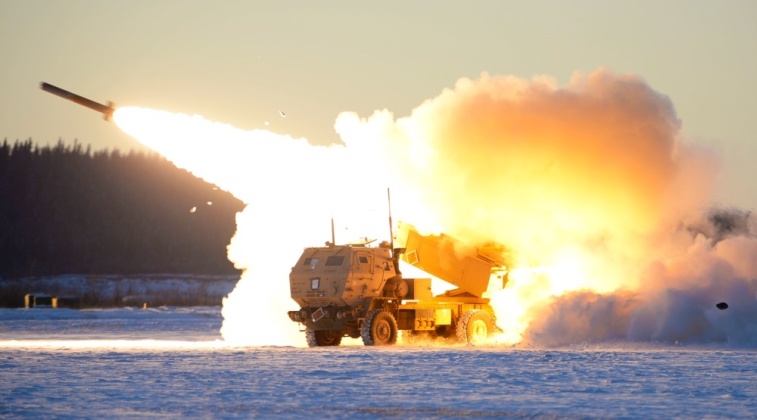News
HIMARS Rockets ‘Increasingly Less Effective’: U.S. and Ukraine Face Fast Improving Russian Countermeasures
The American HIMARS rocket artillery systems widely fielded by the Ukrainian Military has repeatedly become “increasingly less effective” in terms of its accuracy when employed against Russian forces, according to five U.S., British, and Ukrainian sources familiar with the matter cited by CNN. The GPS guided rocket system has had one of the greatest impacts of any combat asset used in the conflict, and has been responsible for multiple major Ukrainian successes including a strike on a Russian barracks on January 1 which killed 89 military personnel. The system was previously made particularly effective by a wide network of Western personnel – both active duty and contractors – providing support in areas from intelligence to logistics to ensure that new equipment can be operated effectively. Access to hundreds of satellites from NATO members, which can provide key targeting data on Russian positions, has also been key, with HIMARS itself reliant on GPS guidance. While Russian air defences have frequently shot down rockets from the HIMARS system, it was not clarified how Russian forces may have eroded its effectiveness. Electronic warfare and some means of jamming its guidance remains likely, however, with Russian ground forces benefitting from much greater concentrations of electronic warfare equipment and specialists in their ranks than their Western counterparts.

The HIMARS system has an engagement range of 80km allowing it to strike deep behind Russian lines. A Ukrainian drone operator cited by CNN described Russian the efforts to disrupt its operations as “significant,” noting that this escalated significantly from November. A Pentagon official cited anonymously described efforts towards getting around Russian countermeasures as“a constant cat-and-mouse game.” A senior Pentagon official said the systems received “constant tweaking to get them to stay effective,” with updates made “as recently as this week.” While in a full scale war HIMARS and similar assets from both sides would be highly vulnerable to strikes on the satellites they rely on for targeting data, Russia has refrained from targeting NATO satellites in the limited war in Ukraine despite moves to further expand its anti satellite capabilities.












